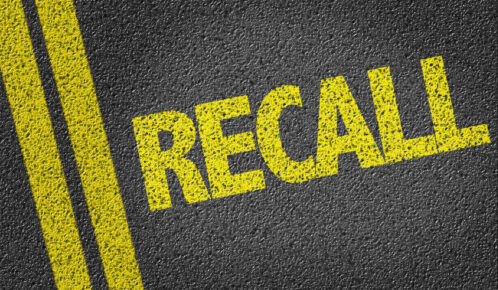Chicago, IL (11/18/24) – Grimmway Farms has recently recalled a batch of carrots and baby carrots due to the risk of E. coli contamination. This recall affected 19 brands across the U.S., Canada, and Puerto Rico. This recall affects their organic carrots that did not have a “best if used by” date, but were available between August 14th to October 23rd, 2024, and the organic baby carrots that had best if used by dates ranging from September 11th to November 12th, 2024. Currently, 39 illnesses and one death are associated with this outbreak.
Table of Contents

The strain of e. coli, or Escherichia coli, that contaminated these carrots is a Shiga toxin-producing variant of the bacteria. This type of e. coli is a common culprit of illness and outbreaks in the United States, and it is commonly contracted through consumption of contaminated food. This strain is also known for causing bleeding in the intestines.
A full list of products affected by the carrot recall can be found on the FDA’s website. These products should no longer be available for purchase, but may be in some consumers’ fridge or freezer.
What Is E. Coli?
E. coli is a wide range of bacteria, some of which live in the guts of healthy humans and animals and assists in food digestion. However, some strains of these bacteria can cause serious and sometimes fatal infections in the elderly, young children, and individuals with weakened immune systems. Some E. coli infections have been known to cause bloody diarrhea, or the development of high blood pressure, chronic kidney disease, and even neurological problems. Common symptoms of E. coli infection include:
- Severe stomach cramps
- Diarrhea (watery, sometimes bloody)
- Fever
- Nausea/Vomiting
- Fatigue
- Loss of appetite
The normal incubation period for E. coli in humans can range from 24 hours to as long as 10 days, with an average incubation period of 3 to 4 days.
How Do You Become Infected With E. Coli?
There are many ways individuals can become infected with the e. coli bacteria. Though one of the most common ways is through consumption of contaminated foods, it is not the only way the bacteria is spread. Some other ways e. coli is spread are:
- Drinking contaminated water.
- Touching surfaces contaminated with feces. This can include changing diapers, wiping after using the restroom, or touching petting zoo animals.
- Drinking unpasteurized beverages.
E. coli is contagious, but cannot be transmitted through coughing or sneezing. However, you are at risk of infection if you are caring for someone with e. coli, especially if you come into contact with their feces, or you touched something they handled, and they didn’t wash their hands properly.
Preventing E. Coli Infection
Washing your hands is one of the most effective ways of preventing the spread of e. coli. Always wash your hands before and after handling raw meats, particularly poultry, using the restroom or changing diapers, or contact with animals.
Additionally, following safe food preparation practices reduces the risk of infection as well. Cook foods to the proper temperatures, avoid unpasteurized milks, ciders, and other products made with these ingredients. Wash all fruits and vegetables before consumption.
What to Do With Recalled Products
If you have products affected by the Grimmway Farms carrot recall, it is important that you do not consume them. Throw away or destroy any of the recalled products, and clean and disinfect any surfaces said products came into contact with, and wash your hands after handling them. Do not feed this product to pets.
How a Product Liability Lawyer Can Help You
In the event you became ill due to the consumption of these products before the recall was initiated, you may have a product liability case. Contact an experienced product liability attorney as soon as possible for a free case evaluation. If you have grounds to sue, your attorney can assist you in compiling evidence and holding the liable party responsible for your losses.
Is There a Time Limit for Product Liability Claims in Chicago?
There is a time limit for filing a product liability claim in Chicago. This time limit, known as the statute of limitations, is generally two years from the date of illness or injury. However, there are some circumstances that may influence how the statute of limitations applies to your claim. Your injury lawyer will inform you of the time limit that applies to your situation.
Who Can Be Held Liable in a Product Liability Claim?
Many parties can be held liable in a product liability claim. Everyone from the manufacturer/producer all the way to the stores selling products to consumers can be responsible for your illness. In some cases, multiple parties will be defendants in a lawsuit. Your product liability lawyer will investigate your case and help determine who to hold liable for your illness.
The skilled attorneys at Ankin Law have over 100 years of combined experience handling product liability cases. Our attorneys will protect your rights, negotiate to maximize your compensation, and advocate for you in court should your case go to trial. We offer free consultations and a contingency fee structure, so you don’t pay any attorney fees unless we recover compensation on your behalf. Contact us for a free review of your claim today.



